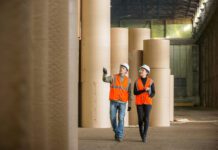
Ahead of chairing a session at the ADBA Scottish National Conference 2019, Mike Berry, Senior Policy Adviser for the Scottish Government, sets out the importance of a Scottish circular economy, in a reproduction of an article that appears on ADBA’s blog
While Scotland is one small country in a big wide world, we’re using the levers within our power to make whatever difference we can to tackling climate change. Scotland has a range of strategies for reducing greenhouse gas emissions across the economy, and two of our main areas of focus are renewable energy and waste management.
In building a circular economy, we want to stop talking about ‘wastes’ and start talking about ‘resources’. We want to exert influence over the supply chain so that we can reduce the amount of resources avoidably but irreversibly lost as wastes. This will require a shift in mindset in how we manage our resources, and we are looking for new ways of measuring progress, such as developing a new electronic waste data tracking system to track both resources and wastes through the economy.
Scotland has a range of bodies, such as Resource Efficient Scotland and Zero Waste Scotland, that support businesses and others in reducing their emissions and using their resources more efficiently. The Circular Economy Investment Fund also supports innovative products, business models, and technologies that make better use of resources. We are expecting the challenge of resource management to change over time as certain waste streams reduce and others become more prominent.
The priority always has to be to reduce the amount of waste produced in the first place and redistribute that which is reusable, but for waste that is unavoidable, recycling is vital. Anaerobic digestion (AD) has a vital role to play in recycling organic wastes such as inedible food waste, farm waste, and sewage, and will need to be available wherever unavoidable organic waste is produced across the economy. AD’s future will become even more promising as the technology develops, allowing it to become more cost-efficient and scalable for smaller sites such as small-scale farms. Biofuels such as biomethane from AD are also likely to become increasingly important in replacing the internal combustion engine to combat transport emissions from heavy vehicles.
I’ll be chairing a panel session at the ADBA Scottish National Conference 2019 on the future of AD in Scotland, focusing on the policy and regulatory landscape that will be required to allow Scotland to meet its climate-change and waste targets. I hope to see you there for what promises to be an interesting and insightful discussion.
The ADBA Scottish National Conference 2019 will take place on 28th February at the Radisson Blu Hotel in Glasgow. You can see full details of the conference and register your place here.








